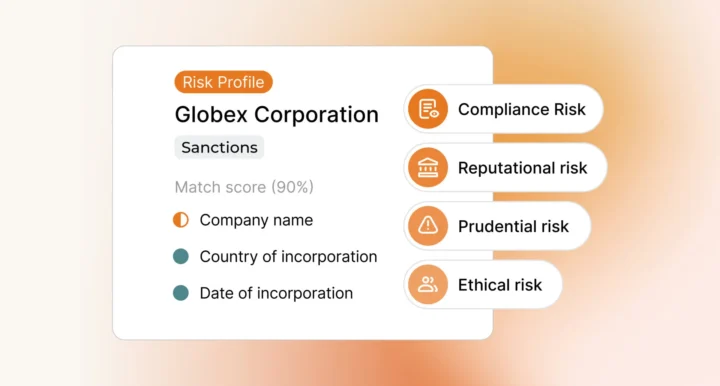The Monetary Authority of Singapore (MAS), the city’s primary financial regulator, published its five-pronged National Strategy for Countering the Financing of Terrorism (CFT) on 7 October 2022. The Strategy serves as a roadmap for the development of action plans to counter the financing of terrorism through Singapore’s financial system, and emphasises the role of local law enforcement agencies with international partnerships and counterparts, reflecting the global nature of the terrorism threat.
MAS published the CFT strategy following a holistic assessment conducted in 2020. Following that assessment, the regulator identified Singapore’s key terrorism financing threats as stemming from “regional and international terrorist groups”, and from “radicalised individuals” operating alone. The CFT strategy was devised to enhance coordination between Singapore’s law enforcement agencies, government policy makers, supervisory agencies, regulators, and private sector organisations.
The five prongs of MAS’ CFT strategy are as follows:
1. Coordinated and Comprehensive Risk Identification
Under this prong of the CFT strategy, MAS will ensure that it takes a whole-of-government approach to preventing terrorism financing. In particular, MAS states that government agencies should work closely with each other through “already well-established cooperation committees and networks”. It states that these agencies should review the terrorism financing landscape on a regular basis, considering “current and emerging typologies, international standards and requirements, and inputs from the private sector and academia”.
2. Strong Legal and Sanctions Frameworks
Under the Strategy, MAS will put a comprehensive legal framework in place so that Singapore’s law enforcement authorities will be able to take “swift and effective action” against the financiers of terrorism, which may include terrorist organisations and terrorists themselves. MAS will also ensure that Singpaore’s financial sanctions framework matches international standards and conventions, and that there is a clear policy framework in place to help identify terrorists that are attempting to raise funds.
3. Robust Regulatory Regime and Risk Targeted Supervisory Framework
MAS will work to ensure that Singapore’s AML/CFT regulatory framework remains robust and resilient. Similarly, it will ensure that the city’s “risk-based supervisory framework” and private sector AML/CFT compliance requirements continue to meet international best practice standards, and the standards set out by the Financial Action Task Force (FATF).
As terrorism financing methodologies become more sophisticated, MAS will also work to improve Singapore’s surveillance and supervisory measures “through the use of data analytics and technological tools”. MAS will use those tools to collect and analyse data from global sources, and to “detect and target higher risk activities and entities” that may present terrorism financing threats.
4. Decisive Law Enforcement Actions
MAS notes that law enforcement agencies already have “an effective operational framework to investigate and prosecute” incidents of terrorism financing, but points out that there is still scope for greater inter-agency cooperation. To that end, the Strategy includes a commitment to enhance cooperation between Singapore’s law enforcement agencies in order to detect and investigate terrorism financing cases promptly.
MAS will also expand its collaboration with private sector businesses to “better detect and disrupt” terrorism financing. Similarly, it will work to enhance Singapore’s legal framework to ensure that terrorism financing investigations are prosecuted successfully.
5. International Partnerships and Cooperation
MAS notes the importance of international cooperation in the fight against terrorism financing. With that in mind, the Strategy will see MAS “continue to rigorously implement” international anti-money laundering and counter-financing of terrorism standards, which are set by bodies such as the FATF and the United Nations Security Council (UNSC). MAS will also continue to work and cooperate with other international jurisdictions, both seeking and providing legal assistance in order to “proactively tackle” funding flows associated with terrorist financing.
The Strategy states that MAS will use a range of mechanisms to achieve its CFT partnership and cooperation objectives, including entering into bilateral agreements, and using intelligence sharing platforms. As part of the Strategy, MAS restates Singapore’s commitment to contributing to the international fight against terrorism financing by taking “firm and resolute action” wherever it detects criminal activities.
MAS Compliance
MAS’ five pronged strategy underlines the importance of effective AML/CFT compliance for firms that operate within Singapore. The Strategy is still relatively new to the city-state’s regulatory landscape, so its immediate impact remains to be seen, but the details set out in the five prongs suggest that multilateral cooperation, with Singapore’s law enforcement agencies and with other private sector entities, will be central to AML/CFT regulatory framework going forward.
Risk based AML/CFT will also continue to underpin Singapore’s compliance landscape, meaning that firms must continue to implement effective automated customer screening and monitoring in order to detect criminal activities. Accordingly, in order to enable that level of risk-based compliance, and cooperation with other entities, firms in Singapore must be able to harness customer data quickly and efficiently.
Ripjar’s Labyrinth Screening platform has been developed to enable firms to achieve that compliance objective, with the capacity to screen thousands of data sources in real time, including sanctions lists, watch lists, and adverse media in over 20 languages. Labyrinth seamlessly blends structured and unstructured data, delivering actionable intelligence to help you firm understand when risk profiles change or when customers engage in suspicious activities, and then to act decisively to inform MAS in order to prevent terrorist activities
To learn more about compliance with MAS AML/CFT regulations, contact us today.
Last updated: 3 February 2025





